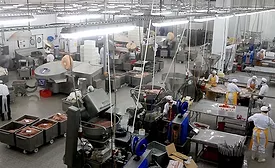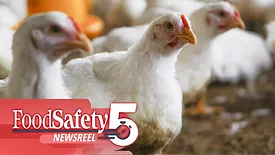Management
Conducting a food fraud vulnerability assessment helps identify potential weaknesses in the supply chain and assist in establishing effective controls to mitigate those risks
Read More
The ROI of Food Safety: From Compliance Cost to Strategic Investment in 2026
In a global food and beverage industry under pressure from recalls, regulation, litigation, and consumer expectations, food safety is not just about staying compliant; it is about staying in business
December 9, 2025
Footsteps and Forklifts: The Dance of the Production Floor
Food safety alert: things that move can take other things on unwanted journeys
December 8, 2025
Never miss the latest news and trends driving the food safety industry
Newsletters | Website | eMagazine
JOIN TODAY!Copyright ©2026. All Rights Reserved BNP Media.
Design, CMS, Hosting & Web Development :: ePublishing












